 Edit article
Edit articleSeries
Torah Min HaShamayim: Conflicts Between Religious Belief and Scientific Thinking

123rf, adapted
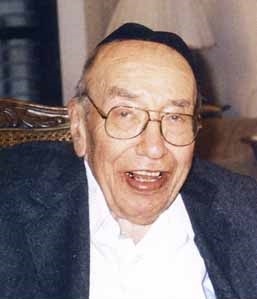
AIP Emilio Segre Visual
Just over sixty years ago, the Association of Orthodox Jewish Scientists was founded to resolve “the apparent points of conflict between scientific theory and Orthodox Judaism.”[1] The claims of paleontology, cosmology, and especially evolutionary biology exposed contradictions with traditional beliefs that were hard to overcome-so hard, indeed, that Alvin Radkowsky (an eminent nuclear physicist and leading member of the association) described the challenge as “a test of faith comparable to that faced by the biblical Abraham.”[2]
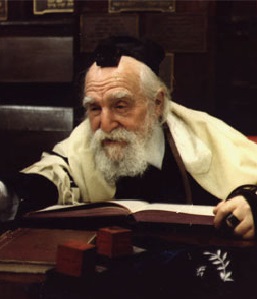
Today, evolution is no longer a hot topic amongst Modern Orthodox Jews. Few feel anxiety, let alone an impending Akeidah, at the challenge evolution poses-and even fewer would follow the advice of Rabbi Moshe Feinstein and tear the offending pages out of schoolbooks. Even in the Hareidi community, rejection of evolution is no longer universal. When a ban was issued against the books of the “zoo rabbi” Nosson Slifkin for questioning the scientific judgments of the Talmud, opposition was intense-yet several prominent rabbis rallied to his defense.
Absorbing New Ideas
Judaism’s ability to make peace with and absorb emerging scientific ideas is not new. Nine centuries ago, Maimonides declared the anthropomorphisms of the Torah to be allegorical. Dibrah torah bil’shon benei adam-the Torah speaks in human language-Maimonides tells us, stretching the talmudic saying well beyond its original intent to imply that words need not have their literal meaning. Nahmanides read the creation narrative as a spiritual lesson, and pointed out its non sequiturs if interpreted literally. And although integrating the Torah with science was of paramount importance to some, other exegetes were less enthusiastic and preferred to put the scientific issues aside.
Ibn Ezra, in introducing his Torah commentary, excoriates commentators (including Saadiah Gaon) who bring lengthy astronomical explanations to bear on the text. And Rashi, quoting a midrash, famously poses a stunning question on the very first verse of Bereshith, asking why the Torah should start with a discussion of creation at all when it might instead have started with the first mitzvah. This suggests a different strategy: reconciling science and Torah not by bringing them together into a coherent whole, but by recognizing that their concerns are largely disjointed.
Science itself has increasingly moved in this direction, attenuating its conflict with religion. The medievals made no clear distinction between the sciences and humanities, or between scientific and religious knowledge. The development of scientific theories was therefore constrained by religious beliefs. Although Copernicus revolutionized astronomy by rejecting the geocentric view of the universe, he was not prepared to consider an elliptical path for planetary motion, so his theory required “epicycles” to preserve the divine perfection of the circular orbit.
Isaac Newton, famously characterized by John Maynard Keynes as a “Judaic monotheist of the school of Maimonides” sought an integration of his religious beliefs and scientific theories, and wrote in an unpublished manuscript that “God is known from his works.”[3] Over time, however, science separated itself from religion, and scientific theories no longer relied on, or made, metaphysical claims. The great theories of modern physics, relativity, and quantum mechanics take this to an extreme: Science is no longer even about what exists, but only about what can be observed.
And thus we arrive today at the widely held view that science and religion have no inherent conflict, each in its pristine form being emptied of any claims about the other. As the biologist Stephen Jay Gould put it, science and religion represent “non-overlapping magisteria.” Science addresses the composition of the universe and how it works; religion examines questions of ultimate meaning and moral value. As Gould puts it cleverly: “These two magisteria do not overlap, nor do they encompass all inquiry. Science gets the age of rocks, and religion the rock of ages; science studies how the heavens go, religion how we go to heaven.”
Gould, who described himself as a Jewish agnostic, suspected that the soul did not exist, but hoped he was wrong and saw value in both endeavors: “The attainment of wisdom in a full life requires extensive attention to both domains-for a great book tells us that the truth can make us free and that we will live in optimal harmony with our fellows when we learn to do justly, love mercy, and walk humbly.”[4]
Harder Questions
Although the challenges presented by the natural sciences have receded, fresh challenges have taken their place and seem to pose much harder and more far-reaching questions. The field of biblical criticism has unearthed a mass of evidence that the Torah is a composite document that reflects the prevailing ideas of other cultures contemporaneous with ancient Israel. How, in the light of such claims, can one adhere to the belief, required by Maimonides in his eighth principle of faith, that the Torah we have in our hands today is the very same Torah that was handed down by Moses, and that it is all of divine origin?
Moses, according to Maimonides, acted like a scribe taking down a dictation; consequently, he insists, there is no difference in holiness or authority between verses such as, “And the sons of Ham were Cush and Mizraim, Phut and Canaan” and verses such as, “I am the Lord thy God” or “Hear, O Israel.” Nahmanides maintained that the very letters of the Torah encode secrets revealed to Moses-hence the reason that omission of even a single letter renders a Torah scroll invalid.
To be sure, not all Orthodox Jews accept these rather extreme formulations of Torah min haShamayim. Evidence of small differences between the Masoretic text and earlier manuscripts makes it hard to sustain confidence in the perfect reliability of the Torah’s transmission. When we raise the Torah in synagogue and declare veZot haTorah asher sam Mosheh-this is the Torah that Moses placed before the children of Israel-few of us feel a need to defend the assertion in its most literal sense. Moreover, the view of Moses as copyist of the entire Torah was challenged long before modern biblical criticism; Ibn Ezra’s cryptic comment about the secret of the final twelve verses of the Torah is usually assumed to be an allusion to his belief that Moses did not record the events of his own death.
Many Orthodox Jews have absorbed the sensibilities of source criticism, even while rejecting its broader claims, and are skeptical of theories with origins whose historicity is dubious. They treat traditional attributions of authorship-that David wrote the psalms, or that Solomon wrote Ecclesiastes-as rhetorical, no different from the Gemara’s statement that Moses himself instituted the first paragraph of Birkat haMazon.[5]
But these finer points of criticism, however important they may be for scholars, have little practical impact. Their theological impact is minor too, because few Jews build the foundations of their belief and religious commitment on such fragile assumptions. Moreover, contemporary assertions of the most extreme positions keep company with other intellectual positions of questionable rationality.
Thus the advocates of “Bible codes,” for example, in which hidden messages are inferred from the exact placement of letters in the text of the Torah, seem to rely either on the dubious assertion that the Masoretic text was the version given to Moses, or on the strange belief that God should have chosen to reveal his message to the world only following the Masoretic redaction and not before. But the very notion of Bible codes is implausible, since any suitable text of comparable length will furnish “prophecies” that are just as convincing (as Michael Jackson has demonstrated, by writing a computer program that produced similar results when applied to Milton’s Paradise Lost [6]). At least the Bible code enthusiasts have heeded Mark Twain’s advice that “the art of prophecy is very difficult, especially with respect to the future,” and have limited their efforts to prophecies of events that have already occurred.
Authorship of the Torah
The larger questions of authorship of the Torah, on the other hand, have enormous consequence. In its literal sense, the Torah conflicts with contemporary morality in many areas: in its acquiescence to slavery, its apparent advocacy of genocide (e.g., in the context of the Canaanite ban), and its prescription of the death penalty for many offences (including witchcraft, breaking Shabbat, and homosexuality). If the Torah is not divine in its entirety, rather than approaching these issues apologetically, contextualizing them, or regarding their plain meaning as superseded by more palatable rabbinic interpretations, we might instead see them as evidence of a human element – not to be justified, but on the contrary to be deemphasized and maybe even repudiated. On the other hand, if the Torah is entirely divine, we should presumably see our own moral qualms as reflections of our inadequate understanding, and adjust them accordingly (although, as we shall see, such a conclusion is not in fact necessary).
It is the confluence of these nagging moral questions and the doubts seeded by biblical criticism that present such a formidable challenge to many Orthodox Jews today. The rise of feminism has greatly exacerbated the dilemma. As Tamar Ross puts it: “What makes the feminist analysis unique is that the ultimate question it raises does not concern any particular difficulty in the contents of the Torah (be it moral, scientific, or theological). Nor does it concern the accuracy of the historical account of its literary genesis. Highlighting an all-pervasive male bias in the Torah seems to display a more general skepticism regarding divine revelation that is much more profound.” [7]
In response to this dilemma, a reactionary will say that we have here nothing more than a clash of value systems, and that, for a believer, the Torah must prevail. The claims of biblical criticism do not meet scientific standards, its arguments are rife with qualifications and disagreements, and the evidence of multiple authorship is a figment of the critic’s imagination. But however mightily we might struggle, like former Chief Rabbi Hertz in his commentary to the Humash, to undercut the positions of the critics by exposing their mutual inconsistencies, the fact remains that in the scholarly world there is broad consensus on the basic premises of source criticism, and the ongoing accumulation of evidence over the last century has made its findings hard to reject out of hand.
Considering Reasonable Possibilities
From a scientific perspective, a religious position that rejects the claims of biblical criticism is not irrational because it views those claims as untrue; after all, biblical criticism is not a scientific discipline whose claims can be evaluated in repeatable experiments. Rather, rejecting the claims outright is irrational because it denies even the possibility that they might be true. To be unwilling to even consider that the Torah might be a composite document is no different in principle from holding firm to the belief that the Earth is stationary and that the sun revolves around it. In this sense, attempting to sustain a belief in traditional notions of divine authorship brings science and religion into full conflict.
For Richard Feynman, the Nobel laureate physicist, the very essence of the scientific mind is its capacity for doubt: “It is our responsibility as scientist, knowing the great progress and great value of a satisfactory philosophy of ignorance… to proclaim the value of this freedom, to teach how doubt is not to be feared but welcomed and discussed, and to demand this freedom as our duty to all coming generations.”
From this perspective, if we ignore the dilemma or compartmentalize our religious lives, we are shirking our scientific responsibilities, attempting to preserve our religious integrity at the cost of our intellectual integrity.
The Tenacity of Unreasonable Beliefs
Richard Feynman was not a philosopher, and despite writing with extraordinary clarity and elegance on many topics, criticizes religion in a way that will strike most religious readers as unsophisticated and unconvincing. (In one of his books, in a chapter entitled Is Electricity Fire?, he reports a conversation with some students at a university Hillel about Shabbat observance, and ridicules the notion of melakhah [9]. At least he admitted the limits of his expertise: “A scientist looking at nonscientific problems,” he said, “is just as dumb as the next guy.”[8])
Likewise, the recent spate of anti-religious books, such as Richard Dawkins’s The God Delusion or Christopher Hitchen’s God Is Not Great: How Religion Poisons Everything, might warm the hearts of atheists-but are unlikely to sway any believers. Their tone is angry and dismissive, and the religious views that they put down are for the most part crude strawmen. And their attitudes toward Jews and Judaism are unlikely to win them much sympathy.
Dawkins has called for an academic boycott of Israel, and his description of the Jewish lobby (as a model for a possible atheist lobby) was criticized for implying that all supporters of Israel are religious Jews. Hitchens described Hannuka in an article in Slate as “childish stuff” and cast the Hasmoneans as fundamentalist anti-Hellenists, whose success was a triumph of “bloody-minded faith over enlightenment and reason” that retarded “the development of the whole of humanity.”[10] (According to Shaye Cohen, Hitchens has his facts wrong: The goal of the Hasmoneans was to find a way to live with Hellenism. Many of their practices show its influence-such as the election of the high priest, and even the institution of Hannuka itself, as a festival declared by popular acclaim [11]).
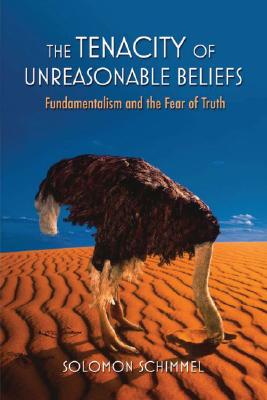
A book published last year by Sol Schimmel[12], a professor of education and psychology at Hebrew College in Boston, is harder to dismiss. Schimmel is himself a traditionally observant Jew, grew up in an Orthodox household, and was educated in right-wing yeshivot. He has an extensive familiarity with rabbinic literature, confesses “deep religious emotions” when singing songs such as Yedid Nefesh, and asserts that even scriptural fundamentalisms have “many positive ethical, psychological, spiritual, and social consequences.”
Nevertheless, his book, The Tenacity of Unreasonable Beliefs: Fundamentalism and the Fear of Truth is ruthless in its critique of Modern Orthodoxy. The book originated in his attempt to understand why, from a psychological perspective, Modern Orthodox Jews cling to a notion of Torah min haShamayim (TMS, as he abbreviates it) that is so at variance with overwhelming evidence and logical reasoning. His studies took him beyond Judaism to both Christianity and Islam; Jewish readers may take some solace in his descriptions of the fundamentalisms of these other religions, which seem to have had far more demonstrably negative consequences, and are tied to literal readings of the Bible and Koran that are less flexible than the rabbinic reading of the Torah. The chapter on Modern Orthodoxy, however, will make many readers squirm.
What is unusual about Schimmel’s book is that his principal argument is not philosophical. Rather, through a series of narratives and discussions of expressed opinions, he offers a psychological critique. In short, Orthodox Jews adhere to irrational beliefs because of the high emotional cost of giving them up, and they create a series of justifications and selective interpretations to bolster positions that, in their heart of hearts, they know to be false. They also employ “selective attention,” avoiding the conflict that arises from considering hard questions, even professing a lack of interest in the historical and literary analysis of a book for which in other respects they have boundless fascination.
Schimmel notes that sometimes believers will even articulate the social, religious, and psychological consequences of skepticism as explicit reason for maintaining belief. Concern that not believing in Torah min haShamayim might undermine observance of mitzvot is a strange justification for making empirical claims.
In some of his arguments, Schimmel brings Modern Orthodox thinkers to help argue his case. In his critique of the Artscroll Humash and its expression of a simplistic rejection of modern thought with a professed humility that “masks the arrogance of the fundamentalist who is certain of the truth… and that all who disagree with him are wrong, misguided, or heretics who have no share in the world to come,” Schimmel is joined by scholars such as Barry Levy for whom the Artscroll commentaries “misrepresent the sacred literature of normative Judaism.”
Schimmel spares Modern Orthodoxy no criticism, however. Widespread capitulation of synagogues and rabbinical organizations to Artscroll signals a coalescing between Modern Orthodoxy and right-wing Orthodoxy, and many of the more independent-thinking scholars have been left on the periphery of a movement that was once more liberal, and that has largely “abandoned its original commitment to a serious and honest engagement with modernity.”
Schimmel makes no secret of his agenda: to deprogram the Modern Orthodox (among others). Indeed, his last chapter is entitled “On Defundamentalizing Fundamentalists.” His book is valuable for the hard questions that it asks, and for the light it shines on strange beliefs and their contrived justifications. For this reason alone, it deserves a wide readership in the Modern Orthodox community. But while it diagnoses the disease, it offers no cure.
Finding a Path
How can we address this challenge, and create a philosophy of Modern Orthodoxy that respects our tradition, reaffirms our commitments to Torah and deeply held moral convictions, and that at the same time preserves our rationality?
Returning to Radkowsky’s choice of the Akeidah as the metaphor for our contemporary challenge in reconciling science and Torah, we might ask: Is this challenge really a test of faith? If so, is it a test we pass only by sacrificing our intellectual honesty on the altar of religious conviction? I sometimes wonder whether some scientists might not justify to themselves, emotionally if not intellectually, the surrender of part of their critical faculty as a small sacrifice, an act of piety made all the more potent by the value they attach to it.
Better then, to view this as a test of intellect rather than a test of faith: to find a way to reconcile the compelling evidence of the late, composite authorship of the Torah with a commitment to halakha; to navigate a path through this rocky terrain that requires neither leaving one’s rationality behind nor disturbing the foundation of traditional Judaism so greatly that the entire edifice begins to crumble.
Many thinkers have mapped out such a path. Some take more turns away from traditional conceptions than others, and their ending points are often very different. Maybe none offers a journey that suits us personally. To some, a path will seem to veer too far from tradition; to others, a path may seem too apologetic, too ready to contrive a complex and implausible theology in defense of the indefensible. Together, however, these paths at least give us a better sense of the terrain as a whole, and make it easier for us to find out own way through.
The first modern proponents of the critical approach to reading the Bible were Protestants who used their scholarly studies in support of their view that Judaism was morally inferior to Christianity. So it was not unreasonable for Solomon Schechter to describe the Higher Criticism of Julius Wellhausen, who had likened Judaism to a dead tree, as the “Higher Anti-semitism.” But after 130 years of scholarship, the field has changed, and many of its leading exponents are Jewish. Amongst these is a cohort of traditionally observant Jews who have articulated their own theories for reconciling their private observances with their public scholarship-often as introductions or codas to their scholarly books.
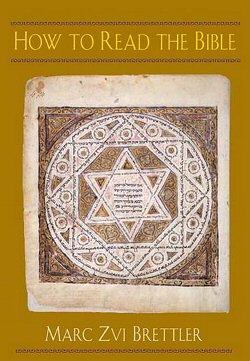
Marc Brettler, closes his "How to Read the Bible"[13] with an afterword entitled “Reading the Bible as a Committed Jew.” The Bible, he explains, is a “sourcebook that I-within my community-make into a textbook… by selecting, revaluing, and interpreting the texts I call sacred.” A textbook offers a monolithic perspective and a prescriptive guide; a sourcebook, in contrast, brings together multiple, and often conflicting perspectives. In describing the Bible as a sourcebook, he makes the point often noted by its scholars (but harder for those to appreciate who have read the Bible only through rabbinic eyes), that the Bible itself does not even claim to be a monolithic book-or even a book at all.
For Brettler, “selection” means choosing one of the Bible’s perspectives over another, in a manner no different, he argues from, for example, how Divrei haYamim chose the cooking method of the korban pesah to be boiling (according to Devarim) rather than roasting (according to Shemoth). Revaluing the text involves recognizing that, as an ancient text, the Torah has not “always aged well,” and finding new meaning that is more consonant with modern sensibilities. Brettler realizes that this is “extremely difficult to do with integrity,” but his willingness to reinterpret the text personally will place him, for many Orthodox Jews, beyond the bounds of the halakhic community.
Mordechai Breuer, like Brettler, acknowledges the problems raised by biblical criticism. He recognizes that the “power of these inferences, based on solid argument and internally consistent premises, will not be denied by intellectually honest persons.” [14] Unlike Brettler, however, Breuer wants to retain the principle of the divinity of the Torah in its entirety, and therefore draws very different conclusions. He sees divine purpose in the structuring of the Torah as a document with multiple, often conflicting strands-providing multiple meanings, and speaking to different generations in different voices.
Remarkably, Breuer seems to adhere to Maimonides’ formulation, believing that this multi-stranded Torah was dictated to Moses, going further even than classical rabbinic sources that were willing to recognize contributions to the text of the Torah both later and earlier in origin than the Sinaitic revelation. The ingenuity of this approach is evident, but it will strike some as too contrived. As Schimmel notes, it is reminiscent of the view held by many (including the Lubavitcher Rebbe) that God created fossils ready-formed. Louis Jacobs noted that such a view is logical in the narrow sense, but the logical gain may be outweighed by the theological loss.
In his early work, We Have Reason to Believe, Jacobs complained that such arguments lead to a conception of a God who intentionally tricks us, planting false clues to lead us astray. In his later work, Beyond Reasonable Doubt, his critique softened; he concedes that the Lubavitcher Rebbe was too sophisticated a theologian to suggest that God placed fossils there as a test of faith “to see whether men would be sufficiently steadfast in their faith in Genesis to resist the blandishments of science.” But, he notes, such positions still require us to believe that God has given us the power to reason, and the ability to uncover compelling evidence, but nevertheless expects us to resist the obvious conclusions.
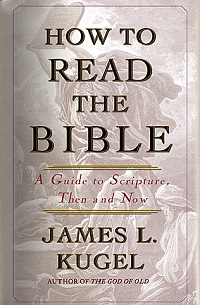
If Breuer and Brettler represent ends of the spectrum, James Kugel sits somewhere between the two. Like Brettler, he is prepared to concede that the Torah was not given in any literal sense to Moses on Sinai, and that it is likely a much later document comprised of multiple sources. Like Breuer, however, Kugel sees a divine hand in this process. He confesses ignorance about how or why this process happened. But although Kugel accepts the premises and methods of biblical criticism, he wholeheartedly rejects what he views as its central agenda.
From the start, biblical criticism has attempted to wind the clock back, allowing us to view the Bible not through the lens of the rabbis but through the perspective of the civilization that gave birth to it, thus revealing the “real Bible,” in contrast to the very different Bible created by rabbinic readings. Kugel maintains that no such “real Bible” ever existed, that interpretation did not follow canonization, disrupting accepted meanings, but that, on the contrary, the Bible was interpreted from the outset, before it was even complete. A “spindly sapling of texts” was able to grow into a “the great date palm of Scripture” only because of the interpretive soil in which it was planted. “The mission on which modern biblical criticism set out, then, without quite understanding it, was to uproot Scripture from that soil the better to study the whole plant and the plant alone.”[17] Paradoxically, then, Kugel’s view of interpretation is remarkably close to the traditional conception of a Torah SheBe’al Peh that was revealed contemporaneously with the written Torah.
While seeing a divine hand in the development of the Torah, however, Kugel does not see a need to defend the divinity of every word. “How,” he asks, “can you distinguish the word of God from other, ordinary human words in Scripture?”[18] Kugel is not willing to answer this question. “I suppose I have my suspicions about this verse or that one, but I really do not believe it is my business to try to second-guess the text’s divine inspiration.” In the same way, he explains, that he desists from walking on the Temple Mount-traditionally forbidden for fear that one would tread in the area of the Kodesh haKodashim-despite having his own ideas about where it once stood, respecting the sacred integrity of the area as a whole, he is likewise content to recognize the sacred integrity of the Bible. The modesty here is compelling, and it allows Kugel to maintain a traditional reverence for the Torah. Indeed, Kugel has opposed the teaching of biblical criticism in Jewish high schools, and has deep reservations about the value of his field, sometimes talking as if it is a curiosity for specialists alone.
Some, however, will see Kugel’s modesty as disingenuous. After all, to most Jews, where exactly the Bet haMikdash was situated has little contemporary significance. But the question of whether the Torah’s proscription of homosexuality, or its advocacy of the death penalty, or its acquiescence of slavery, are divine in origin is no small matter.
Louis Jacobs, like Kugel, sees divine significance in the development of rabbinic Judaism, but he is more ready to identify human elements in the Torah. As a distinguished British talmudist, Jacobs sought to demonstrate the flexibility of halakha, and the extent to which it has been influenced by external pressures. The Torah is indeed “from Heaven,” according to Jacobs, but the word “from” must be interpreted in a non-fundamentalist way[16]. A committed but non-fundamentalist Jew, for example, will refrain from smoking on Shabbat, accepting the standard halakhic formulation of observance. But he will find it hard to accept the notion that violation of this mitzvah should incur the death penalty, and is relieved that no Sanhedrin any longer exists to enforce it.
Jacobs was a student of the prominent mussar scholar Rabbi Eliyahu Dessler, and served as an Orthodox rabbi in Manchester and then London for many years. In 1961, he was expected to become the principal of Jews’ College, but his appointment was blocked by the then Chief Rabbi, Israel Brodie, on account of the views Jacobs had expressed in his book We Have Reason to Believe. He was subsequently denied his pulpit, and a number of his congregants left to form a new synagogue. Later he founded the Masoreti movement in Britain, and he regarded himself as closer to (but nevertheless distinct from) the Conservative movement in the United States than to Orthodoxy.
Not surprisingly, his views have been regarded as heretical within the Orthodox community, eliciting vehement opposition. After he was denied an aliya at an Orthodox synagogue prior to his granddaughter’s wedding, on his 83rd birthday, the Chief Rabbi Jonathan Sacks and the Av Bet Din Chanoch Ehrentreu justified the decision on the grounds that reciting the blessing asher natan lanu torat emet-“who gave us the Torah of truth”-would be a false statement coming from his lips.[19]
I suspect that many Orthodox readers share Jacobs’ relief that the death penalty is no longer applied, even if they are unwilling to state such a position in public. Although they are likely to disagree with his theological views on the divinity of the Torah, they might find even more discomfiting his characterization of the halakhic imperative. For Jacobs, Shabbat observance is “mandatory,” and a Jew recites the Shema in “obedience to a divine command.” But in deciding how strictly to be bound by halakha, he may “choose which Sabbath and other observances awaken a response in him.”
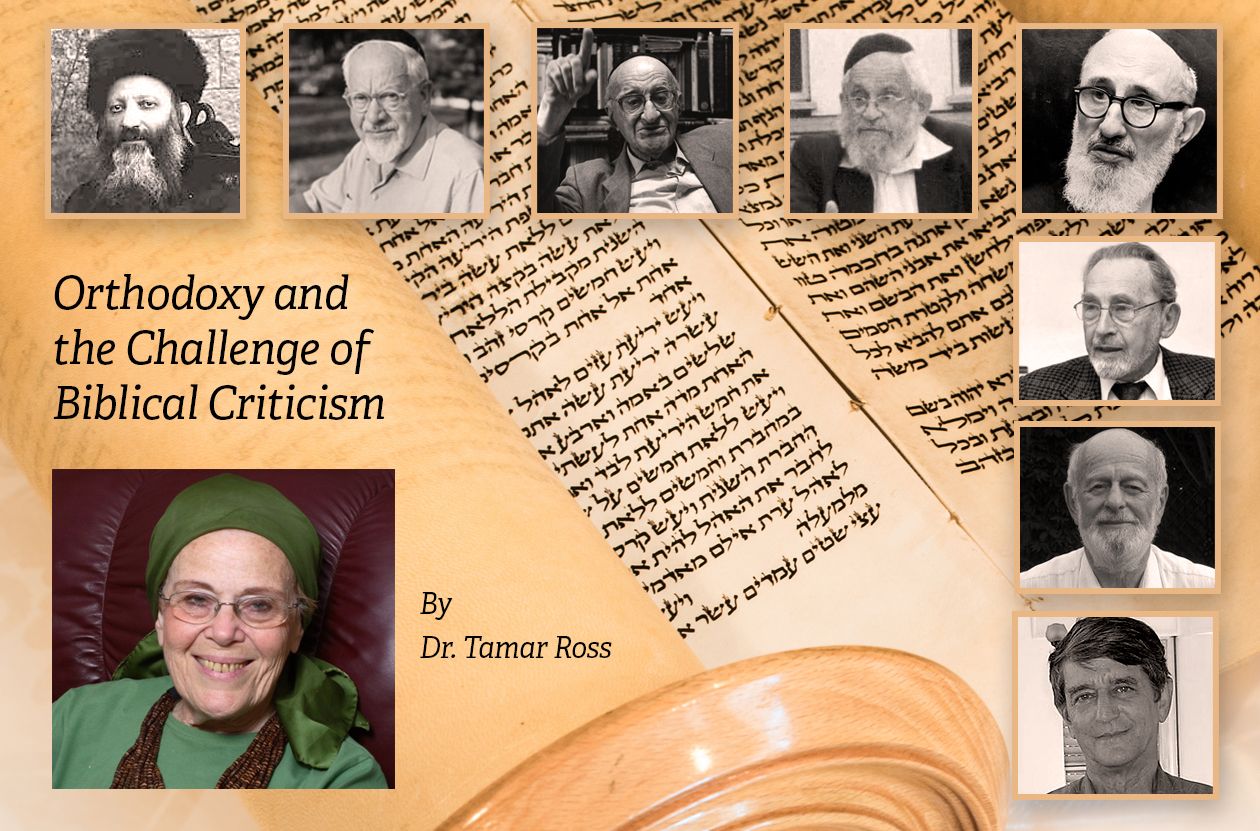
Tamar Ross, a philosopher at Bar Ilan University, takes a more Orthodox attitude. Unlike Jacobs, she is willing to bow to the judgment of posekim even when they seem to be motivated by a worldview at variance with hers. Like Jacobs, however, she is candid in her recognition of the incompatibility of the statements of the Torah with modern sensibilities. As a feminist, she is disturbed by what she sees as a pervasive patriarchal bias in the Torah, and she is not shy to point out the many respects in which the statements of the Torah are in conflict with her own moral convictions.
To Ross, however, these concerns need not undermine the divinity of the Torah. By a divine scheme, the Torah delivered a message that was ideal for the time of its initial revelation. Even its patriarchy, she claims, must have had a purpose-for example, in strengthening the tribe or family. The changing meaning of the Torah brought about by its interpreters ensured that, as time passed, its message was attuned to each new generation. Drawing on the philosophy of Rabbi Abraham Isaac Kook, Ross sees revelation as ongoing and cumulative; feminism, itself, she contends is part of God’s message, which God chose to reveal only in our time.
This of course raises the question of how we are to distinguish between latter-day revelations that should be absorbed into our concept of Torah and those that should be rejected as alien. Here, Ross turns to the theories of textual interpretation of Hans Gadamer and Stanley Fish. Roughly speaking, they treat texts, in postmodern fashion, as lacking any fixed meaning. The interpretation of a text is subjective, arising from the reader’s beliefs and opinions. These are indeed biases, but they are biases that are borne not of anarchy and the whim of the individual, but are nurtured by the community in which the reader belongs. This is how Ross saves herself from lapsing into relativism, by situating herself and her personal interpretations in the community of the halakhically committed.
How then does change come about? It cannot, Ross contends, always be “bloodless”; it will be necessary for those committed to change to act “disruptively” in “unruly moments” that will result in a slow evolution of Jewish practice. As a feminist, Ross is sympathetic to Rabbi Mendel Shapiro’s halakhic analysis [20] that minyanim such as Shirah Hadashah (and now a host of others) have relied upon to justify allowing women to read from the Torah and receive aliyot in the company of men.
But at the same time she is respectful of the response of Rabbi Yehuda Henkin [21], who was able to find no fault in Shapiro’s case, but argued nevertheless that the practice was unacceptable because it lay beyond the bounds of community consensus. Ross notes with approval that Henkin leaves room for the practice in private settings, and she is willing to go ahead on this basis: not advocating a change for the entire community, but nevertheless hoping that, from a small start, the larger change will ultimately come about.
Conclusion
Perhaps one day the challenge of biblical criticism will seem as unremarkable to contemporary Jews as the historical controversy over anthropomorphism seems to us today. In the meantime, in our struggle to find a notion of Torah min haShamayim consistent with both our commitment to rationality and to our deeply held religious convictions, we might do well to bear in mind that problems of this complexity rarely have neat solutions. A pristine philosophical theory that resolves all contradictions is unlikely to be convincing; rather, we must learn to live with doubt-not merely to tolerate it, but to embrace it as an expression of our seriousness in our quest for truth.
We tend to think of our religious commitments as built on a foundation of belief, as the rooms of a house are built on a concrete foundation beneath. Every perceived crack in the foundation raises a fear that the entire edifice might collapse. Perhaps it would be better to view our religious commitments as a boat, held aloft by the surging waters of a river that are continually rising and falling, made up of currents that are fluid and complex, sometimes flowing together, and sometimes against each other, but always, in aggregate, carrying the boat forward, downstream toward the sea.
TheTorah.com is a 501(c)(3) nonprofit organization.
We rely on the support of readers like you. Please support us.
Published
May 2, 2013
|
Last Updated
January 15, 2026
Previous in the Series
Next in the Series
Before you continue...
Thank you to all our readers who offered their year-end support.
Please help TheTorah.com get off to a strong start in 2025.
Footnotes

Dr. Daniel Jackson is a professor of computer science at MIT, and a member of Congregation Shaarei Tefillah in Newton, MA.
Essays on Related Topics:









